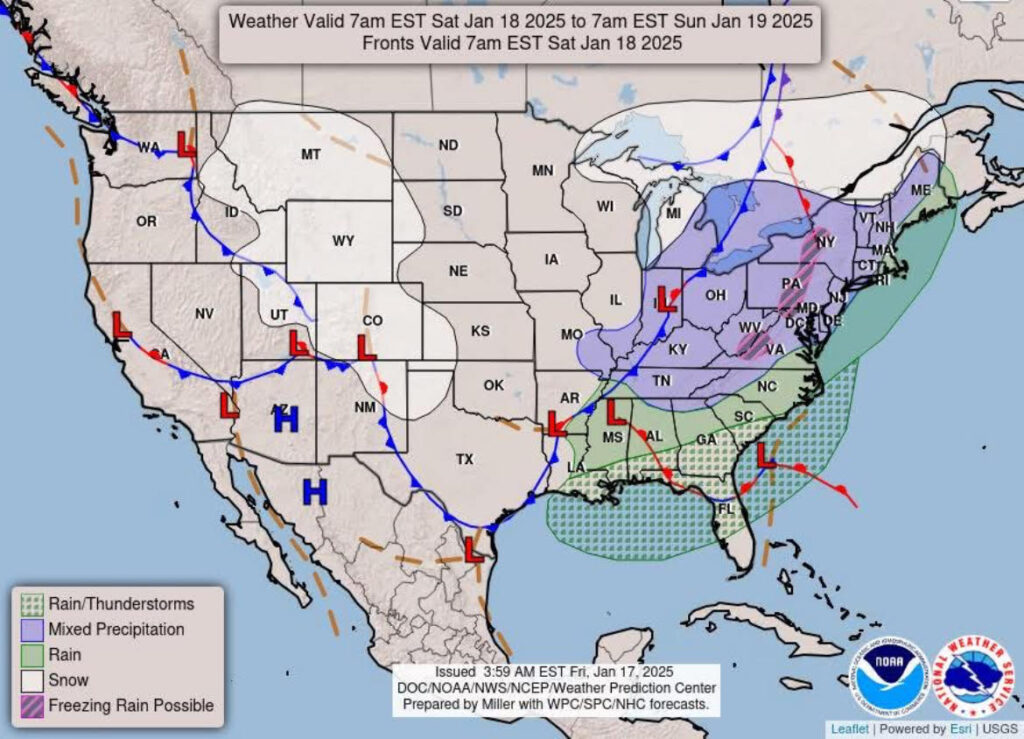
Special to IFN
The National Weather Service urges residents to take precautions as a cold wave moves across the region on Sunday, plunging overnight temperatures into the teens through Thursday.
A very cold Arctic airmass will build over the region Sunday night. Expect temperatures to fall into the teens across the foothills and Piedmont, and single digits in most of the mountains.
Highs in many areas will not rise above freezing Monday. Similar temperature trends will recur Tuesday and Wednesday.
This prolonged cold period meets the definition of a “cold wave.” Its duration sets it apart from cold snaps of the kind we see multiple times each winter, and the associated impacts are expected to be more significant.
The cold weather will result in high demand for electricity across the region. Power outages may result from the heavy electrical load. Those who require electricity for heating or medical equipment should consider backup heat or electrical sources.
Take the following steps to protect your property and health from the extreme cold:
♦ If you go outside, wear several layers of loose fitting, lightweight, warm clothing rather than one layer of heavy clothing. Mittens are warmer than gloves. Wear a hat and cover your mouth with a scarf.
♦ If driving, keep your gas tank near full to avoid ice in the tank and fuel lines. Check your antifreeze and windshield washer fluid levels. Be sure to carry a fully charged cell phone.
♦ If you are home, consider allowing indoor plumbing fixtures to drip to allow water to trickle through pipes and inhibit freezing.
♦ Use caution with space heaters in order to avoid fire or injury.
♦ If emergency generators will be used, they must be situated outdoors in well-ventilated areas to prevent carbon monoxide poisoning.
♦ Remember to check in on family, friends, and elderly neighbors who might be susceptible to the cold.
♦ Do not forget about your pets and livestock. Make sure they have a source of water that will not freeze and a warm place to take shelter from the wind and cold.
♦ Do not attempt to walk on frozen ponds, lakes, or streams, as the ice will not be thick enough to support the weight, even of a child.
A cold wave is defined as average daily temperatures 12 degrees or more below normal mid-January average daily temperatures for 48 hours or longer.



